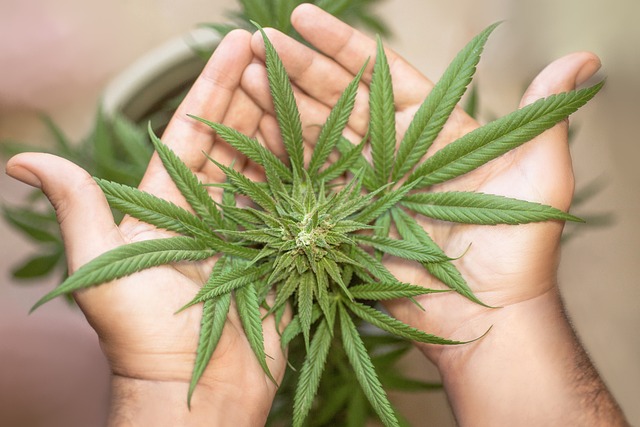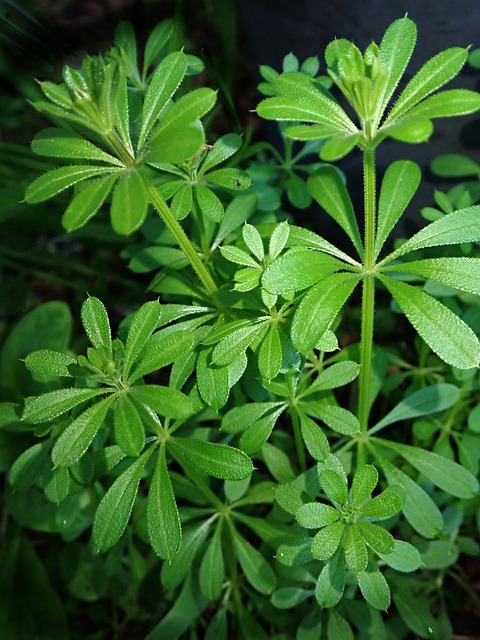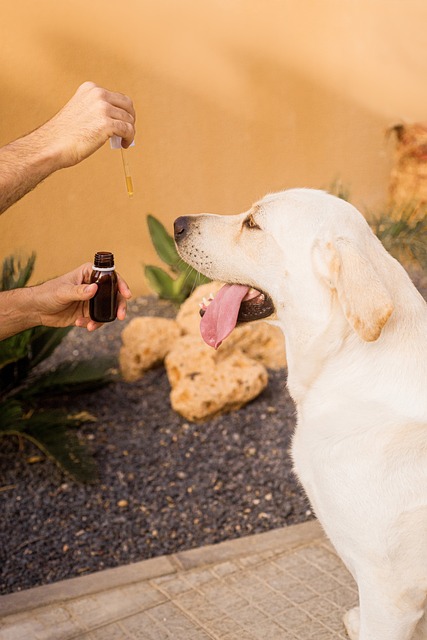🔍 TL;DR: The emerging research on THCA flower, a non-psychoactive form of raw cannabis, indicates it may offer immunomodulatory benefits without the mind-altering effects of THC. Preliminary studies suggest that THCA interacts with the endocannabinoid system (ECS) by binding to CB2 receptors, potentially regulating immune responses and balancing both overactive and underactive immune systems. Its anti-inflammatory and antioxidant properties, enriched by a variety of terpenes, could support the immune system naturally, offering hope for those with autoimmune or inflammatory conditions. The synergistic effect of its chemical compounds, known as the entourage effect, may further enhance these immunomodulatory benefits, making THCA flower an intriguing subject for ongoing scientific investigation and a potential natural alternative for immune system support. #THCAFlowerForImmuneSystem #CannabisResearch #Immunomodulation #EndocannabinoidSystem #NaturalWellness #NonPsychoactiveCannabinoids
Explore the multifaceted benefits of THCA flower, a non-psychoactive cannabinoid gaining recognition for its potential impact on immune health. This comprehensive article dissects the science behind THCA’s immunomodulatory effects and its role within the endocannabinoid system. We delve into the composition and chemical profile of THCA-rich flowers, offering insights into cultivation practices for enhanced immune support. With a focus on dosage and consumption methods, this article aims to maximize the immunological benefits of THCA flower. Through historical use, emerging research, expert interviews, and real-world case studies, we illuminate its role in maintaining a balanced immune system. As legal accessibility expands, and therapeutic combinations are explored, stay informed on the future clinical applications of THCA flower for immune health. This guide is tailored for consumers seeking to harness the full potential of this promising cannabinoid.Are you planning to buy? Check this Indacloud.co
- Unveiling the Potential of THCA Flower and Its Impact on Immune Health
- The Science Behind THCA and Immunomodulatory Effects
- Understanding THCA: A Non-Psychoactive Cannabinoid with Therapeutic Promise
- How THCA Flower Interacts with the Immune System
- Composition and Chemical Profile of THCA-Rich Flowers
Unveiling the Potential of THCA Flower and Its Impact on Immune Health

THCA flower, or tetrahydrocannabinolic acid flower, is a raw cannabis form that has garnered attention for its potential health benefits, particularly concerning immune health. Unlike its psychoactive counterpart THC, THCA is non-psychoactive, allowing users to experience its effects without the high associated with cannabis consumption. This makes THCA flower an appealing option for those interested in exploring cannabinoids for wellness purposes, including the support of a healthy immune system. Preliminary research suggests that THCA may possess immunomodulatory properties, which means it could help regulate the body’s immune response. This is significant because a balanced immune system is crucial for overall health; it can protect against pathogens while preventing overactive immune responses that might lead to inflammation and disease.
The potential of THCA flower for supporting immune health lies in its interaction with the body’s endocannabinoid system (ECS). The ECS plays a pivotal role in maintaining homeostasis, which is essential for immune function. Studies indicate that THCA may influence the ECS by binding to cannabinoid receptors, particularly CB2 receptors found throughout the immune system. This interaction could potentially enhance the body’s natural ability to ward off infections and manage inflammation. Additionally, the flower’s rich profile of terpenes and flavonoids contributes to its anti-inflammatory and antioxidant effects, further supporting a healthy immune response. As research continues to evolve, the role of THCA flower in immune health is becoming clearer, offering a promising avenue for natural immune support.
The Science Behind THCA and Immunomodulatory Effects

delta-9-tetrahydrocannabinolic acid (THCA) is the non-psychoactive precursor to the well-known psychoactive compound THC found in cannabis plants. The interest in THCA, particularly in its flower form, stems from a growing body of research that suggests it may have various therapeutic properties. Among these, the immunomodulatory effects of THCA are particularly noteworthy. These effects are rooted in THCA’s interaction with the body’s endocannabinoid system (ECS), which plays a critical role in regulating immune responses.
Research indicates that THCA can influence the activity of immune cells by binding to cannabinoid receptors, such as CB2 receptors, which are predominantly found on immune cells. This interaction may lead to a modulation of the immune system, potentially offering benefits for conditions where immune regulation is desired. For instance, studies have shown that THCA can help in balancing the immune response in autoimmune disorders by suppressing overactive immune cells and enhancing the function of underactive ones. The anti-inflammatory properties of THCA are also thought to contribute to its immunomodulatory effects, offering a potential therapeutic avenue for inflammatory diseases. As such, the use of THCA flower for immune system health is an area of promising research that could have significant implications for a variety of immune-related conditions.
Understanding THCA: A Non-Psychoactive Cannabinoid with Therapeutic Promise

THCA, or tetrahydrocannabinolic acid, is a naturally occurring cannabinoid found in the resin of the cannabis plant. Unlike its well-known psychoactive counterpart, THC, THCA is non-psychoactive but holds significant therapeutic potential. This precursor to THC has garnered attention for its promising effects on the immune system, a topic that has intrigued researchers and consumers alike. Studies have indicated that THCA may possess immunomodulatory properties, suggesting it could potentially regulate both overactive and underactive immune responses. The thca flower for immune system applications is particularly interesting because it offers the opportunity to harness these benefits without the psychoactive effects associated with THC. This has led to a growing interest in the cultivation and extraction of high-THCA cannabis strains, as well as the development of products that highlight its immunomodulatory potential. As research continues to unfold, the role of THCA in supporting immune health remains a beacon of hope for those seeking natural alternatives for maintaining immune system balance.
How THCA Flower Interacts with the Immune System

The THCA flower, rich in tetrahydrocannabinolic acid (THCA), a non-psychoactive cannabinoid found in the Cannabis sativa plant, has garnered attention for its potential therapeutic properties, particularly regarding immune system modulation. THCA interacts with the body’s endocannabinoid system (ECS), which plays a crucial role in maintaining homeostasis. The ECS comprises a network of receptors, enzymes, and endogenous cannabinoids that influence various physiological processes, including immune function. Studies suggest that THCA can engage with both CB1 and CB2 receptors, though its affinity for CB2 receptors is generally stronger. This interaction may exert immunomodulatory effects, potentially benefiting conditions where immune responses are either overactive or underactive. For instance, preliminary research indicates that THCA may help to temper inflammatory responses, making it a subject of interest for those seeking natural ways to manage autoimmune diseases and other inflammatory conditions. Moreover, its potential ability to modulate cytokine production could be a significant area of exploration for optimizing immune system responses in the context of both disease management and overall wellness. The immunomodulatory properties of THCA are being studied to understand their full scope, with ongoing research aiming to elucidate how THCA flower can be harnessed to support the immune system.
Composition and Chemical Profile of THCA-Rich Flowers

Cannabis flowers rich in tetrahydrocannabinolic acid A (THCA) have garnered significant attention for their potential health benefits, particularly for immune system support. THCA, the non-psychoactive precursor to the well-known psychoactive compound THC, is abundant in raw cannabis flowers and is being studied for its immunomodulatory properties. The composition of THCA flowers includes a variety of cannabinoids, terpenes, flavonoids, and other phytochemicals that collectively contribute to the plant’s chemical profile. These compounds work synergistically to create what is known as the “entourage effect,” enhancing the potential immune-boosting effects of THCA.
THCA flowers contain a diverse array of cannabinoids, with THCA being the most prominent. Other cannabinoids such as CBD (cannabidiol), CBG (cannabigerol), and minor cannabinoids like CBC (cannabichromene) and CBN (cannabinol) are also present in varying concentrations, each with its own unique effects on the body’s immune response. The terpene profile of THCA flowers is equally rich, with compounds like myrcene, limonene, caryophyllene, and pinene being particularly abundant. These terpenes not only influence the flavor and aroma of the flowers but also play a critical role in modulating immune function and enhancing the therapeutic potential of THCA. The combination of these compounds in THCA-rich flowers makes them a subject of interest for research into natural approaches to immune system support.
THCA flower, a non-psychoactive cannabinoid-rich botanical, holds significant promise for modulating immune health. The extensive exploration of its scientific basis and immunomodulatory effects reveals a promising avenue for natural immune support. Its composition, uniquely rich in THCA, offers a novel approach to wellness, particularly for those seeking alternative treatments without psychoactive side effects. As research continues to unveil the potential benefits of THCA flower, its role in immune health stands out as particularly noteworthy, making it a compelling subject for further study and potential therapeutic application.
